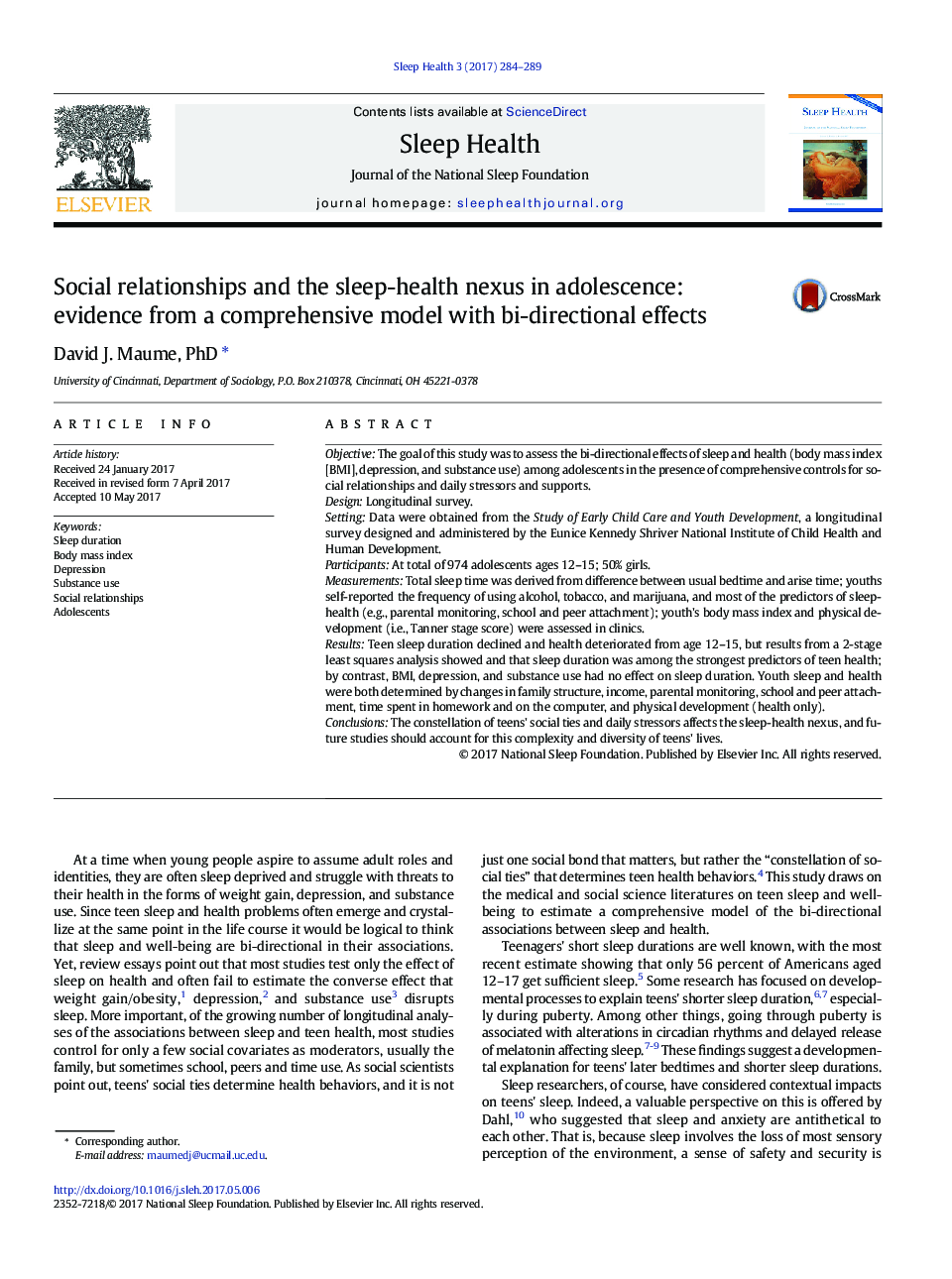| Article ID | Journal | Published Year | Pages | File Type |
|---|---|---|---|---|
| 5039558 | Sleep Health | 2017 | 6 Pages |
ObjectiveThe goal of this study was to assess the bi-directional effects of sleep and health (body mass index [BMI], depression, and substance use) among adolescents in the presence of comprehensive controls for social relationships and daily stressors and supports.DesignLongitudinal survey.SettingData were obtained from the Study of Early Child Care and Youth Development, a longitudinal survey designed and administered by the Eunice Kennedy Shriver National Institute of Child Health and Human Development.ParticipantsAt total of 974 adolescents ages 12-15; 50% girls.MeasurementsTotal sleep time was derived from difference between usual bedtime and arise time; youths self-reported the frequency of using alcohol, tobacco, and marijuana, and most of the predictors of sleep-health (e.g., parental monitoring, school and peer attachment); youth's body mass index and physical development (i.e., Tanner stage score) were assessed in clinics.ResultsTeen sleep duration declined and health deteriorated from age 12-15, but results from a 2-stage least squares analysis showed and that sleep duration was among the strongest predictors of teen health; by contrast, BMI, depression, and substance use had no effect on sleep duration. Youth sleep and health were both determined by changes in family structure, income, parental monitoring, school and peer attachment, time spent in homework and on the computer, and physical development (health only).ConclusionsThe constellation of teens' social ties and daily stressors affects the sleep-health nexus, and future studies should account for this complexity and diversity of teens' lives.
